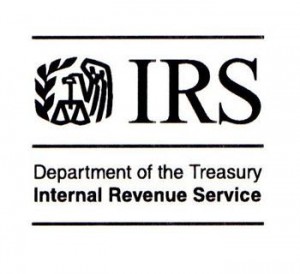A new article, Section 403(b) Plan Design and Compliance, discusses the rules that apply when eligible tax-exempt organizations establish tax-sheltered annuities, custodial accounts, or retirement income accounts, as described in Section 403(b) of the Internal Revenue Code (403(b) plans).
This article addresses the following topics:
- 403(b) Plan Overview
- Eligible Employers and Employee>
- ERISA Coverage of 403(b) Plans
- Qualification Requirements
- 403(b) Plan Contributions
- 403(b) Plan Distributions
- Implementation and Operation
- Correcting 403(b) Plan Errors
- Terminating 403(b) Plans
- EP Subcommittee Report: 403(b) Plan Issues and Recommendations
- Advantages and Disadvantages of 403(b) Plans

 The Tax Cuts and Jobs Act of 2017 made a number of changes affecting the compensation and benefits that governmental, church, and other tax-exempt organizations can provide to their employees. Given the short time between introduction and passage of the Act, it is not surprising that many of the new provisions are unclear in their application. Moreover, some of them may produce unintended consequences for these organizations.
The Tax Cuts and Jobs Act of 2017 made a number of changes affecting the compensation and benefits that governmental, church, and other tax-exempt organizations can provide to their employees. Given the short time between introduction and passage of the Act, it is not surprising that many of the new provisions are unclear in their application. Moreover, some of them may produce unintended consequences for these organizations. On April 8, 2016, the Department of Labor (“DOL”) issued final guidance dealing with investment advice to ERISA plans and their participants. While this guidance does not by its terms apply to governmental and church plans (which are not subject to ERISA), such plans often use DOL guidance as an indication of best practices which they will follow. Moreover, the DOL suggests that a breach of contract claim may be available to enforce the standards with respect to individual retirement accounts (“IRAs”), which are not subject to ERISA. While the DOL has no authority to regulate governmental and church plans, it has laid out a road map which state courts may use to impose liability on governmental and church plans under a breach of contract theory.
On April 8, 2016, the Department of Labor (“DOL”) issued final guidance dealing with investment advice to ERISA plans and their participants. While this guidance does not by its terms apply to governmental and church plans (which are not subject to ERISA), such plans often use DOL guidance as an indication of best practices which they will follow. Moreover, the DOL suggests that a breach of contract claim may be available to enforce the standards with respect to individual retirement accounts (“IRAs”), which are not subject to ERISA. While the DOL has no authority to regulate governmental and church plans, it has laid out a road map which state courts may use to impose liability on governmental and church plans under a breach of contract theory. Federal law contains provisions forbidding discrimination based on several classifications: race, sex, veteran status, etc. However, no federal law explicitly prohibits discrimination based on sexual orientation or transgender status. As a result, many employers in states which do not have their own legislation barring discrimination based on sexual orientation or transgender status have assumed that no laws prohibited such discrimination.
Federal law contains provisions forbidding discrimination based on several classifications: race, sex, veteran status, etc. However, no federal law explicitly prohibits discrimination based on sexual orientation or transgender status. As a result, many employers in states which do not have their own legislation barring discrimination based on sexual orientation or transgender status have assumed that no laws prohibited such discrimination. This post was updated on June 26, 2015 to reflect the Supreme Court’s decision in
This post was updated on June 26, 2015 to reflect the Supreme Court’s decision in  The
The 